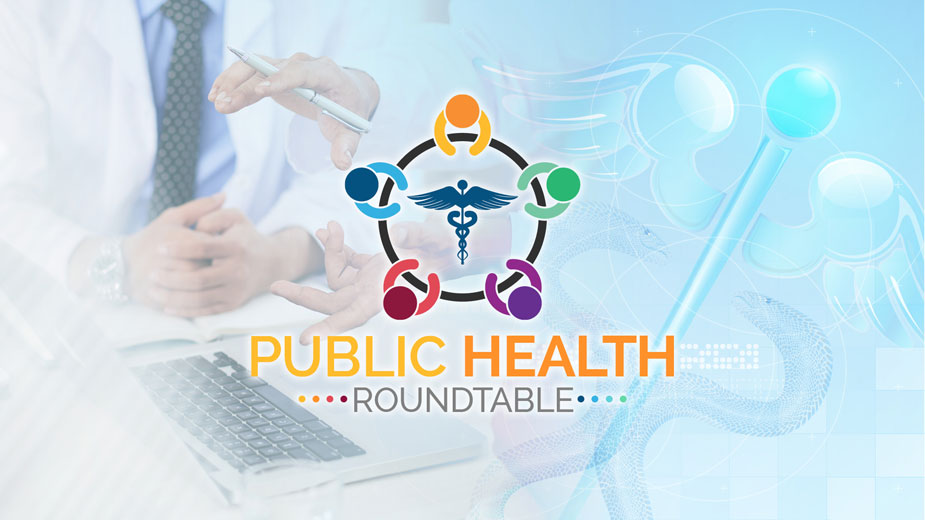Roundtable: Pandemic Highlights How Health Care Can Improve
YOUNGSTOWN, Ohio – The end of the coronavirus pandemic is in view, but residents of the Mahoning Valley need to be as vigilant as ever, Dr. James Kravec said.
“It’ll take about half a year, I think, to vaccinate everyone that needs to be vaccinated. The first few months will be health-care workers and the sickest patients, as well as extended care and assisted living. For every person that gets vaccinated, that’s one less person that we’ll potentially see in clinics and hospitals,” he said. “We’re absolutely going to see a downward trend, but we absolutely can not let our foot off the gas until a good portion – we’re not there yet – of the population is vaccinated. Continue social distancing, wearing a mask and staying home when you’re sick.”
The comments by Kravec, Mercy Health-Youngstown’s chief medical officer, come on the day after the first vaccines from Pfizer arrived at Ohio hospitals during The Business Journal’s roundtable on public health Tuesday morning. His thoughts were shared by others in the health-care field that have spent the past nine months working to mitigate the impact of COVID-19 on local communities.
“We know in public health that vaccinations are critical to illness prevention. There’s good data out there that for every five patients who get a flu vaccine, one of them prevents an influenza illness. That’s big,” said Dr. Michael Bigham, chief quality officer for Akron Children’s hospital and pediatric intensivist in the hospital’s intensive care unit. “I don’t think we have the track record on whether or not the COVID-19 vaccine has the same effect, but I don’t think we can take a wait-and-see approach. Our community is too fragile with the prevalence of COVID-19.”
While the pandemic has been the chief discussion among health-care professionals in 2020, the problems highlighted by COVID-19 have been just as worthy of discussion. Joining Kravec and Bigham at The Business Journal’s roundtable were Dr. George Garrow, chief medical officer of Primary Health Network; Wes Vins, commissioner of the Columbiana County Health District; Erin Bishop, commissioner of the Youngstown City Health District; Ryan Tekac, commissioner of Mahoning County Public Health; and Sarah Lowry, director of Healthy Community Partnerships.
A transcript of the hour-long discussion will be published in the January issue of The Business Journal, out the first week of the month. Video from the virtual roundtable will also be posted to BusinessJournalDaily.com and our social media channels.
Though the coronavirus had affected every community in the Mahoning Valley, it’s impact is disparate depending on where you may live. In Columbiana County, Vins offers as an example, issues around access such as transportation were exacerbated.
“We have a lot of rural folks who are isolated or generationally affected by poverty,” he said. “As the pandemic evolved, we saw the economic disparities and many people wrestling with many issues related to the economic impact in addition to the access to health care. We have access points, but barriers like transportation and insurance coverage made it even more difficult.”
In Youngstown, Lowry adds, the need for access to healthful foods and outdoor activities was highlighted as transportation to grocery stores in the suburbs – there are no full-service stores inside city limits – was limited and indoor spaces such as gyms closed, leaving residents with few places to do physical activities.
“There was an understanding that now we need to bolster our public health systems, but also bolster our environmental factors as well,” she says. “There are national and local conversations in investment in infrastructure to make sure people have welcoming outdoor spaces near them.”
The pandemic has also shined a spotlight on the lack of trust in government and health officials, Garrow said.
“There’s a relative lack of trust in pockets of our community in health authorities, public health officials, government officials,” he said. “A big challenge I’ve been trying to understand is how we as a community can re-establish and regain trust, particularly from disaffected communities and groups. In order for us to succeed in mitigation and the vaccination campaign, it’s essential to earn that trust.”
Part of that effort could be something like Mahoning County Public Health’s Pathways Hub, which employs community health workers in their own communities, giving residents the chance to talk with someone who understands what they’re going through – both from a medical perspective and a social one.
“We need to ensure that people delivering the messages look like them. When we talk to people of color, we need to ensure the ones going into the community to address health issues and educate people are people that they can relate with,” he said.”[Community health workers are] people throughout the community that can go work with individuals at a level they understand.”
But the pandemic hasn’t been entirely bad news, Bishop added. It’s forced a greater emphasis on health care as a continuum, a spectrum that includes public health departments, hospitals, citizens and businesses. It’s a sentiment all the panelists agreed with.
“This is the first time that businesses have been calling us and asking for our advice. They want to know how they can keep their employees healthy,” she said. “Then we found that some were trying things and asking us about their model. They were getting creative and then we could share that with the next business that asked. … Any time we’re on a coalition, we ask how to get business involved. Now, we have that relationship where going forward we can talk to them about what we’re doing.”
Copyright 2024 The Business Journal, Youngstown, Ohio.



